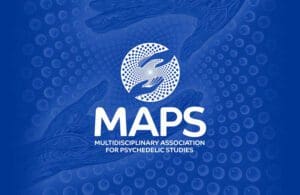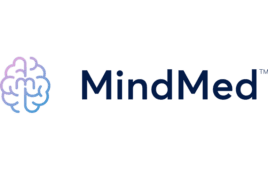 First synthesized in 1912 by Merck, the empathogenic drug 3,4-Methylenedioxymethamphetamine (MDMA) is inching toward FDA approval following the positive results of a phase 3 study. The recently concluded phase 3 study, MAPP2, published in Nature Medicine, found that MDMA-assisted therapy significantly outperforms traditional talk therapy in reducing PTSD symptoms. Participants receiving MDMA-AT had an 86.5% response rate (≥10-point reduction in PTSD symptoms), compared to a 69.0% response rate among participants receiving therapy with placebo. Equally impressive, 71.2% of the MDMA-AT participants no longer met the PTSD criteria post-treatment, in contrast to the 47.6% in the placebo with therapy group. At the close of the trial, 46.2% of the MDMA-AT participants met the remission criteria in contrast to the 21.4% in the placebo with therapy group.
First synthesized in 1912 by Merck, the empathogenic drug 3,4-Methylenedioxymethamphetamine (MDMA) is inching toward FDA approval following the positive results of a phase 3 study. The recently concluded phase 3 study, MAPP2, published in Nature Medicine, found that MDMA-assisted therapy significantly outperforms traditional talk therapy in reducing PTSD symptoms. Participants receiving MDMA-AT had an 86.5% response rate (≥10-point reduction in PTSD symptoms), compared to a 69.0% response rate among participants receiving therapy with placebo. Equally impressive, 71.2% of the MDMA-AT participants no longer met the PTSD criteria post-treatment, in contrast to the 47.6% in the placebo with therapy group. At the close of the trial, 46.2% of the MDMA-AT participants met the remission criteria in contrast to the 21.4% in the placebo with therapy group.
MDMA’s efficacy in PTSD treatment
Source: Mitchell et al. "MDMA-assisted therapy for moderate to severe PTSD: a randomized, placebo-controlled phase 3 trial." Nat Med (2023). https://doi.org/10.1038/s41591-023-02565-4
An earlier phase 3 trial, known as MAPP1 phase 3, was also positive. That study found that, after three sessions, the number of participants receiving MDMA-assisted therapy who no longer met the PTSD criteria was significantly higher compared to those receiving a placebo. Specifically, 28 participants in the MDMA group met that threshold compared to 12 in the placebo group.
Published online 2021 May 10. doi: 10.1038/s41591-021-01336-3
PMCID: PMC8205851 | PMID: 33972795
Early this year, MAPS founder and executive director Rick Doblin predicted the drug would win FDA approval in 2024.
A decades journey: From synthesis to potential FDA approval
MDMA’s journey to the brink of FDA approval stretches back to the 1970s, when a handful of psychiatrists and therapists began to explore its potential in therapy, despite a dearth of clinical trial data or FDA approval. While there were positive signs of its therapeutic potential in a therapeutic context, the eventual widespread availability of MDMA as a street drug would lead to its prohibition by the Drug Enforcement Agency in 1985. The ban stymied research progress, and MDMA’s eventual status as a party drug of the 1990s further clouded its therapeutic potential. But early clinical research into the drug began in the early 1990s. Subsequently, the FDA signed off on a human trial of the drug to assess whether it could reduce pain in terminally ill patients and support psychotherapy.
While the nonprofit organization Multidisciplinary Association for Psychedelic Studies (MAPS), founded in 1986, championed the drug’s therapeutic potential in PTSD in Spain in the early 2000s, political pressure prematurely terminated the study in 2002. It took another two years for MDMA to win the status as an investigational new drug in the U.S.
In 2017, FDA gave MDMA breakthrough therapy status for PTSD, a decision which played a role in stimulating research on schedule 1 substances, especially psilocybin, for their therapeutic potential.
Filed Under: clinical trials, Drug Discovery, Psychiatric/psychotropic drugs, Regulatory affairs



